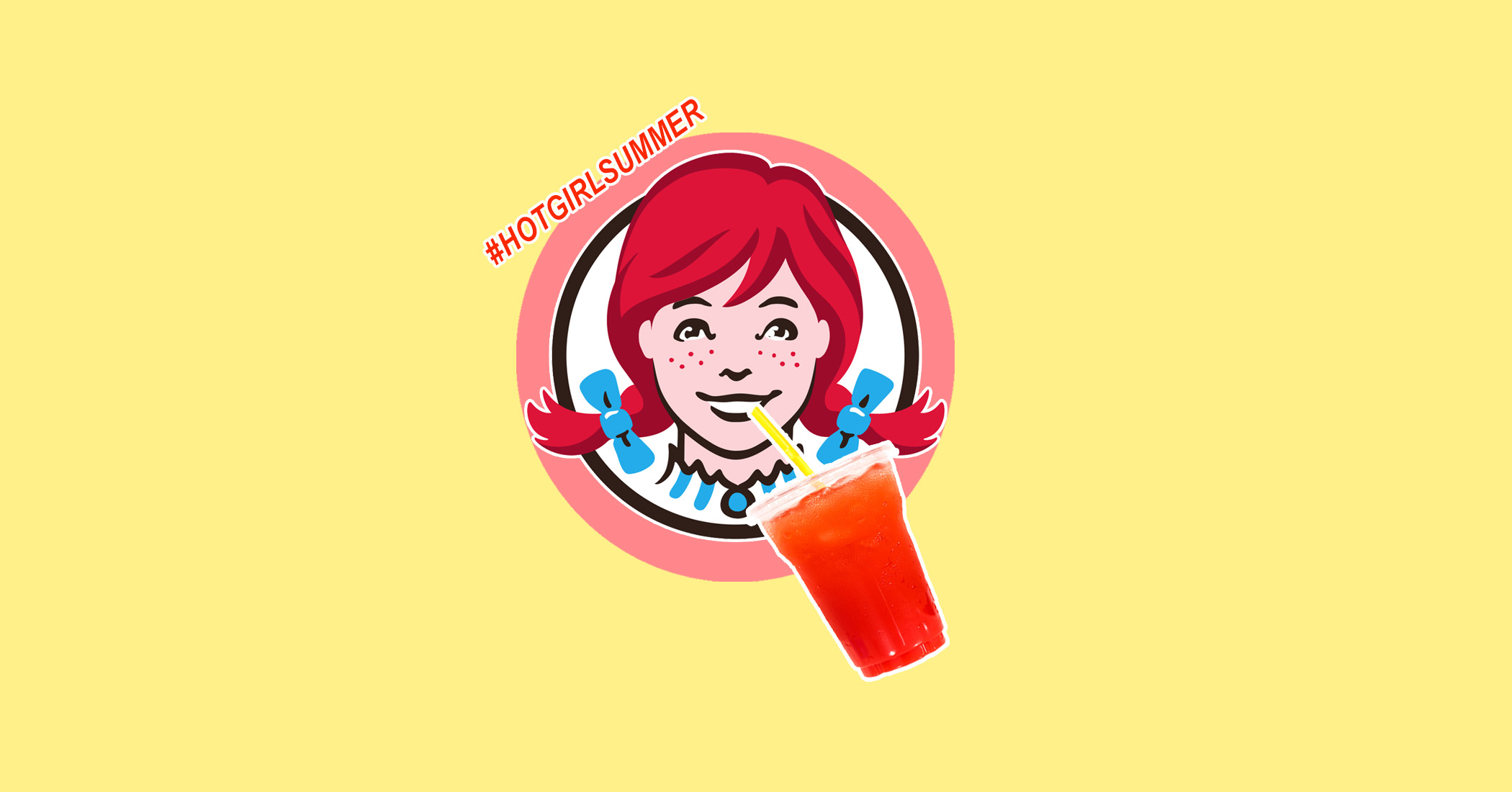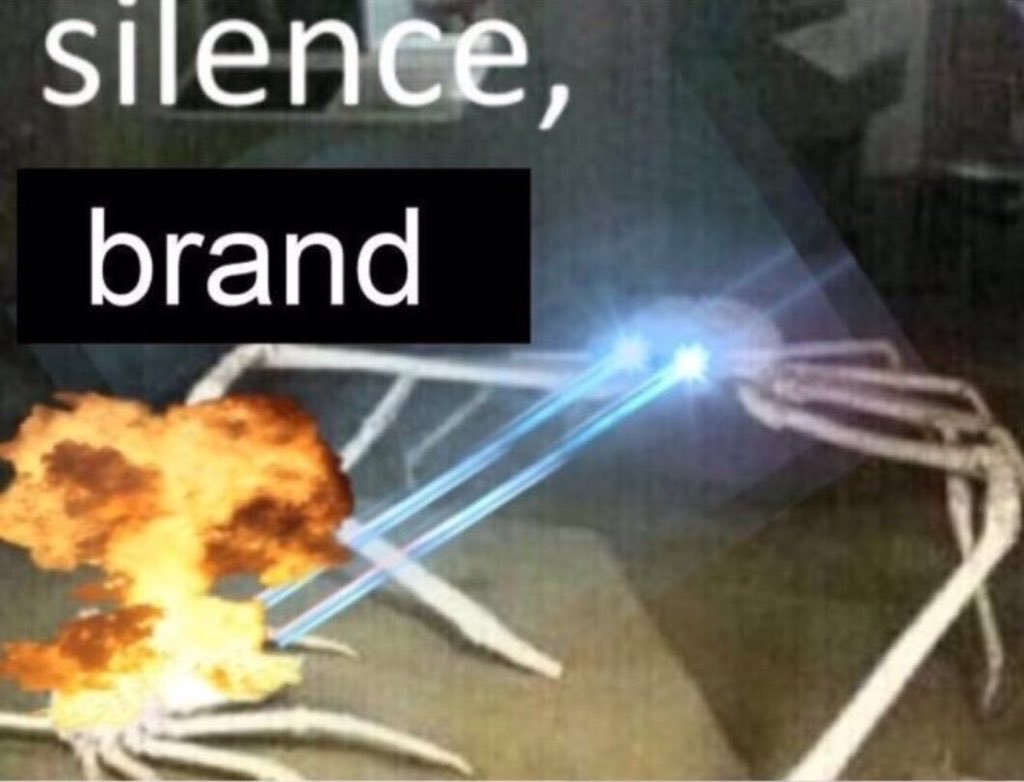Have brands killed meme culture?
'Hot girl summer' is only the latest casualty of extremely online advertising

A free daily email with the biggest news stories of the day – and the best features from TheWeek.com
You are now subscribed
Your newsletter sign-up was successful
"Brand Twitter" — the collection of snarky, self-aware social media accounts designed to appeal to millennials by projecting personalities onto fast food chains — has killed again. Its most recent casualty is "hot girl summer," the viral catchphrase of Houston rapper Megan Thee Stallion.
If you're over 35, or haven't been on Twitter or Instagram recently, you could be forgiven for not knowing what "hot girl summer" is. But the phrase has been ubiquitous on social media this season. As you can probably guess, "hot girl summer" is centered around the experience of being a girl, a hot one at that, during summertime.
Part of its virality is due to its flexibility; "hot girl summer" is malleable in the way that many online trends are. You can caption any picture with it, crack a joke about your unexciting summer schedule, or share pictures of aspirational summer looks. Identifying as female isn't even necessary to have a true hot girl summer.
The Week
Escape your echo chamber. Get the facts behind the news, plus analysis from multiple perspectives.

Sign up for The Week's Free Newsletters
From our morning news briefing to a weekly Good News Newsletter, get the best of The Week delivered directly to your inbox.
From our morning news briefing to a weekly Good News Newsletter, get the best of The Week delivered directly to your inbox.
Hot girl summer is "basically about women — and men — just being unapologetically them, just having a good-ass time, hyping up your friends, doing you, not giving a damn about what nobody got to say about it," Megan told The Root. "You definitely have to be a person that can be the life of the party, and, y'know, just a bad b****."
It turns out a lot of companies would like to be bad b*****s too. On July 9, Wendy's tweeted that their lemonade is the "Official Drink of Hot Girl Summer." Forever 21 sent out a promotional email with the subject line "Feelin' Hot girl SUMMAH!" The phrase has also been used by Maybelline, Pacsun, and countless others. It's totally lame, but also not surprising. The commodification and slow death of "hot girl summer" was expected, but what exactly could have been done to prevent it?
Megan Thee Stallion, for her part, recently filed a trademark on "hot girl summer," which if granted, would bar brands from using it in marketing campaigns. But part of the problem is that memes, even when they originate from specific identifiable sources, occupy a legal and ethical gray zone. It seems obviously wrong for a company to use Grumpy Cat's image or Megan Thee Stallion's trademarked catch phrase to advertise their products online, but when something becomes the internet's collective work, the issue becomes much more complex. Who really owns a meme?
The nature of internet memes is inherently collaborative and astoundingly fast-paced. When it's not possible to trace back a meme, much less trademark one, they're considered "orphan works" under U.S. copyright law, although to be more accurate, these works were really raised in a Three Men and a Baby-type situation.
A free daily email with the biggest news stories of the day – and the best features from TheWeek.com
Legally, it's useful to consider the principle of "implied license," Ronak Patel, an attorney specializing in intellectual property and entertainment law, told The Week. "Generally speaking, a person is not liable for copyright infringement if the copyright holder licenses the work to the person." But social media users don't seek legal permission every time they want to share an image or phrase, and it's unlikely brand accounts do too. Often, this permission is implied through the way the work is created and disseminated.
"In the social media context, one could argue that there is an implied license in nearly every meme, at least where something was intended to be shared. People post to social media to share with others, and often aim to be re-shared," explained Patel. "An implied license could exist to use the meme for the creation of other memes, at least in a non-commercial use."
While "commercial" and "non-commercial" are legal distinctions relating to the "fair use" doctrine of copyright law, that line can get very blurry.
If Nabisco ran a television or magazine ad using Game of Thrones imagery to sell Oreo cookies, they would probably get sued by HBO. But they can tweet about Game of Thrones along with the rest of the world while advertising their product and achieve the same effect.
"Pretty much anything on Twitter, even by Oreo, might imply a license because the very nature of Twitter is to share content," said Patel. Simply being on social media doesn't completely absolve brands, though, and the full legal and ethical consequences of meme theft have yet to be fully explored.
"Non-commercial uses of a work are considered more likely to be a fair use for which you do not need to get permission from the copyright holder," added Stacey Lantagne, an Associate Professor of Law at the University of Mississippi who specializes in intellectual property, including memes. "However, not all non-commercial uses are automatically fair use; likewise, not all commercial uses are automatically infringing."
Basically, lawyers can't agree if there's a line where meme culture definitively ends and copyright infringement begins, because there's nearly no case law on the topic. This lack of precedent results in companies seeing an opportunity to swipe from the virtual cookie jar with almost no repercussions.
Brand tweets can often "have literally nothing to do with the product," Nathan Allebach, the guy behind Steak-Umms' Twitter, told Mel Magazine. "It sometimes sounds very branded, but most times, it kinda sounds like a friend is talking, in some weird way.
"I'm not trying to hide the fact that it's a brand," adds Allebach. "At the same time, I do understand the depth of how subliminal advertising can be, and how no one's immune to it."
So what do we make of this?
Is it even possible for a branded Twitter account to create a "non-commercial" tweet?
The buff bunny art and meme format were created by someone years ago, someone who is very likely not working for Burger King's social media team. They're also not likely to sue Burger King for a fair use violation over this tweet. Everyone else tweeting about this cute bunny and his buff friend are using art that they did not wholly create, but they are also not trying to get you to buy a hamburger. What is a Tweeter to do?
Absent clear legal lines, the second, and in my opinion, more effective option in resisting "brand Twitter" is utilizing the internet's incredible capacity for collective shaming. Even if some branded Twitter accounts successfully balanced self-awareness with ironic humor, their success has led to scores of mediocre copycats and even more antipathy towards meme-based marketing.
Twitter accounts and sub-reddits highlighting the most 'cursed' branded tweets have already popped up, and Twitter users have taken to spamming the worst offenders with a charmingly disturbing image of a spider-like creature shooting lasers out of its eyes, destroying a "brand."

It wasn't too long ago that the advertising industry would create culture-defining catchphrases that stuck around long after their campaign was over — "Where's the beef?" or "Mikey! He likes it!" — instead of waiting for Twitter to come up with something clever to slap a logo on. But recently ads have instead trended towards more visually surreal work, full of non-sequiturs and images carefully designed to go viral, inspired by the work of Tim and Eric, David Lynch, and similarly influential scores of anonymous internet content creators.
There's also the thorny issue of cultural appropriation. So much of the dominant internet culture has its roots in predominantly black and brown culture and spaces. Beyond "hot girl summer," there's "on fleek," "the tea," and the troubling phenomenon of digital blackface, to name a few. Writing in HelloGiggles, Mikeisha Vaughn pointed out the irony of Maybelline co-opting the aesthetics and vocabulary of black women while still failing to produce foundation shades that adequately cater to women of color.
Being advertised to is always tedious, but if you're seeing an ad on TV or a bus stop you know what you're going to get. There's no facade, no charade of amicability. A billboard isn't trying to be your friend, or worse, pretend it's anything but an ad. A magazine spread won't hear one of you and your friends' inside jokes and use it to try and sell you something. Social media's private spaces are rapidly shrinking, no longer designed to mirror real-life social dynamics, but serving instead to further create "content" that can be shared and used — and profited from — by anyone.
And maybe that's the real issue here, more primal than the legal and ethical uncertainties of corporate meme adoption: When a meme is posted by a big brand ... they kinda ruin it. It's simply not fun to make a joke after it's been beaten to death by a bunch of big companies, and brands being extremely online prematurely ends the windows in which we can interact with these ideas and not feel guilty. The lifespan of the average meme is shorter than it ever has been, and when a company seizes on one, it's a sure signal that it's already dead, or will be soon.
Many "hot girl summers" from now, it's likely that the idea of what's even considered advertising will warp and shift to almost unrecognizable lengths, especially when viewed through the primitive lens of our current media landscape. When advertising Twitter finally becomes indistinguishable from regular Twitter, it'll remain our responsibility to beg of them: silence, brand!
-
 Why are election experts taking Trump’s midterm threats seriously?
Why are election experts taking Trump’s midterm threats seriously?IN THE SPOTLIGHT As the president muses about polling place deployments and a centralized electoral system aimed at one-party control, lawmakers are taking this administration at its word
-
 ‘Restaurateurs have become millionaires’
‘Restaurateurs have become millionaires’Instant Opinion Opinion, comment and editorials of the day
-
 Earth is rapidly approaching a ‘hothouse’ trajectory of warming
Earth is rapidly approaching a ‘hothouse’ trajectory of warmingThe explainer It may become impossible to fix